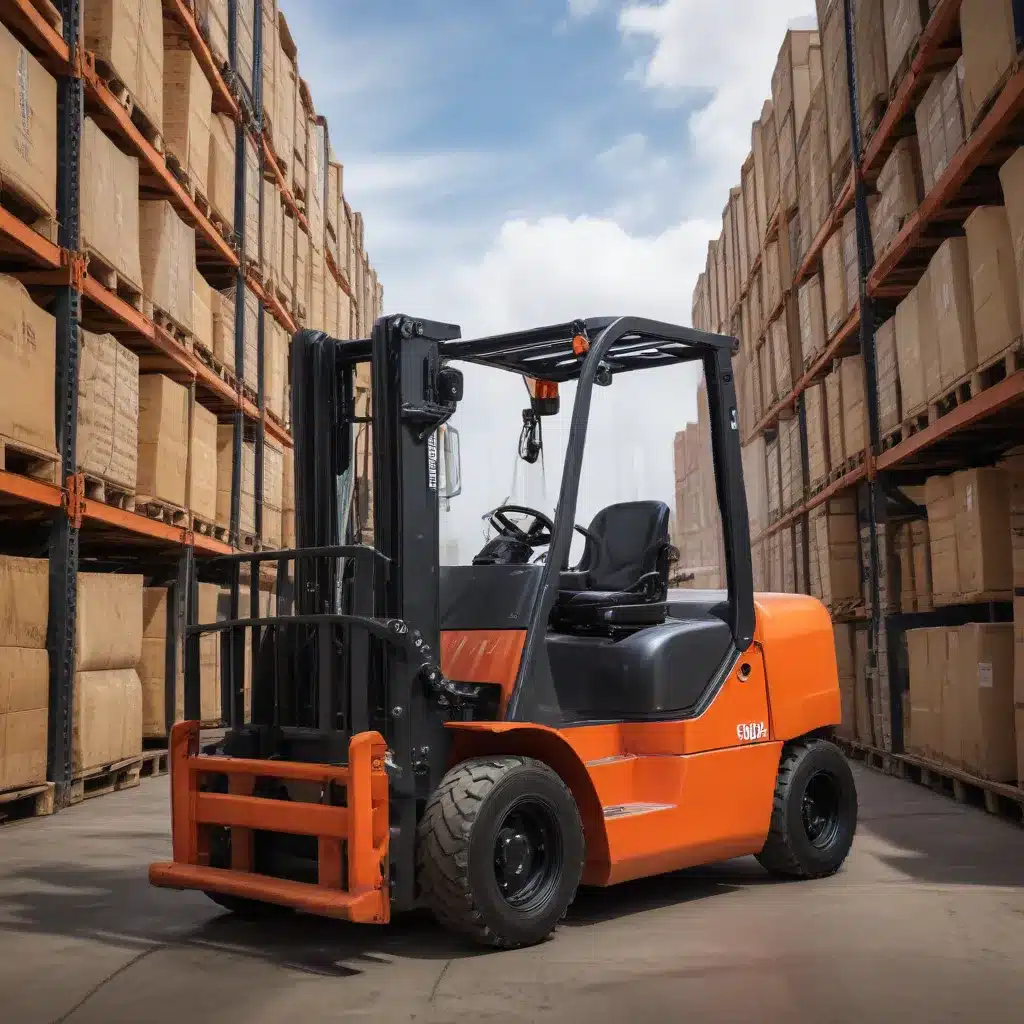
The Rise of Electric Forklifts: Embracing Sustainability and Cost Savings
In the dynamic world of warehouse operations, the demand for efficient and environmentally conscious material handling solutions has been steadily rising. As businesses prioritize sustainability and cost optimization, electric forklifts have emerged as a compelling alternative to their traditional fuel-powered counterparts.
The benefits of electric forklifts are multifaceted. From an environmental perspective, these zero-emission vehicles contribute to reducing the carbon footprint of warehouse operations, aligning with the growing emphasis on corporate social responsibility and compliance with strict environmental regulations. But the advantages of electric forklifts extend beyond just environmental considerations – they also offer significant cost savings that can have a direct impact on the bottom line.
Reduced Operating Costs and Maintenance Needs
One of the primary drivers behind the increasing adoption of electric forklifts is the potential for long-term cost savings. While the upfront cost of an electric forklift may be higher compared to a traditional fuel-powered model, the operational and maintenance expenses associated with electric forklifts are significantly lower.
Electric forklifts require less maintenance, as they have fewer moving parts and do not require engine oil changes or fuel filter replacements. Additionally, the cost of charging an electric forklift is generally lower than the cost of refueling a traditional forklift with diesel or gasoline. Firms like HCO Innovations can help warehouse operators accurately track their energy consumption and identify opportunities for further cost savings through optimized fleet management.
Consistent Power and Productivity
Another key advantage of electric forklifts is their consistent power output throughout their operation. Unlike fuel-powered forklifts, which experience a gradual loss of power as the fuel depletes, electric forklifts provide a constant and reliable source of power. This ensures consistent performance and productivity in warehouse operations, allowing for smoother and more efficient material handling processes.
Furthermore, electric forklifts are quieter and produce less vibration compared to their fuel-powered counterparts. This creates a more comfortable working environment for forklift operators and reduces noise pollution within the warehouse, contributing to overall employee well-being and job satisfaction.
Technological Advancements and Reliability
The advancements in electric forklift technology have also played a significant role in their growing popularity. Modern electric forklifts, equipped with lithium-ion batteries, offer longer runtime and faster charging times compared to traditional lead-acid batteries. This reduces downtime and increases overall productivity in warehouse operations, as forklifts can be swiftly recharged and returned to service.
HCO Innovations stays at the forefront of these technological advancements, helping warehouse operators identify the most suitable electric forklift models that align with their specific operational needs. By partnering with industry experts, businesses can ensure a seamless transition to electric forklifts and maximize the benefits they offer.
Optimizing Forklift Fleet Performance and Efficiency
While the shift towards electric forklifts is a significant step towards improving fuel efficiency and environmental sustainability, it is essential to consider the overall management of forklift fleets to ensure optimal performance and cost-effectiveness.
Effective Load Management
One crucial aspect of forklift fleet management is load management. This involves the strategic planning and control of the loads that each forklift carries, ensuring the weight and distribution of the loads are optimized for safe and efficient operation. Proper load management can have a significant impact on forklift fleet costs.
By distributing loads effectively, businesses can optimize fuel efficiency, reduce wear and tear on forklift components, and extend the lifespan of their equipment. This ultimately leads to lower maintenance and repair costs, reduced downtime, and improved overall efficiency of the fleet.
To implement effective load management, warehouse operators should establish clear guidelines for load capacities and limits for each type of forklift. Operators should be trained on proper load distribution, and regular inspections should be conducted to ensure compliance with the guidelines. Utilizing technology, such as load sensors and weighing systems, can provide real-time data and insights to support better load management decisions.
Predictive Maintenance and Proactive Fleet Optimization
In addition to load management, a well-structured maintenance program is crucial for maintaining the efficiency and longevity of forklift fleets. Adopting a predictive maintenance approach, where forklifts are serviced based on usage patterns and performance data, can help warehouse operators optimize maintenance schedules and reduce unplanned downtime.
HCO Innovations offers comprehensive solutions that leverage advanced analytics and fleet management software to provide actionable insights for proactive fleet optimization. By closely monitoring forklift usage, maintenance histories, and performance metrics, businesses can identify opportunities for cost savings, such as targeted replacements or fleet rightsizing.
Centralized Fleet Management and Cost Allocation
To further enhance the efficiency and cost-effectiveness of forklift fleets, warehouse operators should consider a centralized management approach. By consolidating the oversight and decision-making for the entire forklift fleet, businesses can achieve greater economies of scale, streamline maintenance and repair processes, and implement more effective cost allocation strategies.
HCO Innovations assists clients in developing and implementing centralized fleet management systems, providing tools and expertise to optimize fleet utilization, track costs, and ensure compliance with industry standards and regulations. This holistic approach enables warehouse operators to make informed decisions, allocate resources effectively, and ultimately reduce the overall costs associated with their forklift fleets.
Embracing the Future of Forklift Fleet Management
As the warehouse industry continues to evolve, the need for sustainable and cost-effective material handling solutions has become increasingly pressing. The rise of electric forklifts, combined with the implementation of comprehensive fleet management strategies, offers a compelling path forward for warehouse operators seeking to balance environmental stewardship and operational efficiency.
By partnering with industry experts like HCO Innovations, warehouse operators can navigate the complexities of forklift fleet management, leverage the latest technological advancements, and optimize their operations for long-term success. Through a holistic approach that addresses fuel efficiency, maintenance, load management, and cost optimization, businesses can enhance their material handling capabilities, reduce their environmental impact, and gain a competitive edge in the dynamic warehouse industry.

